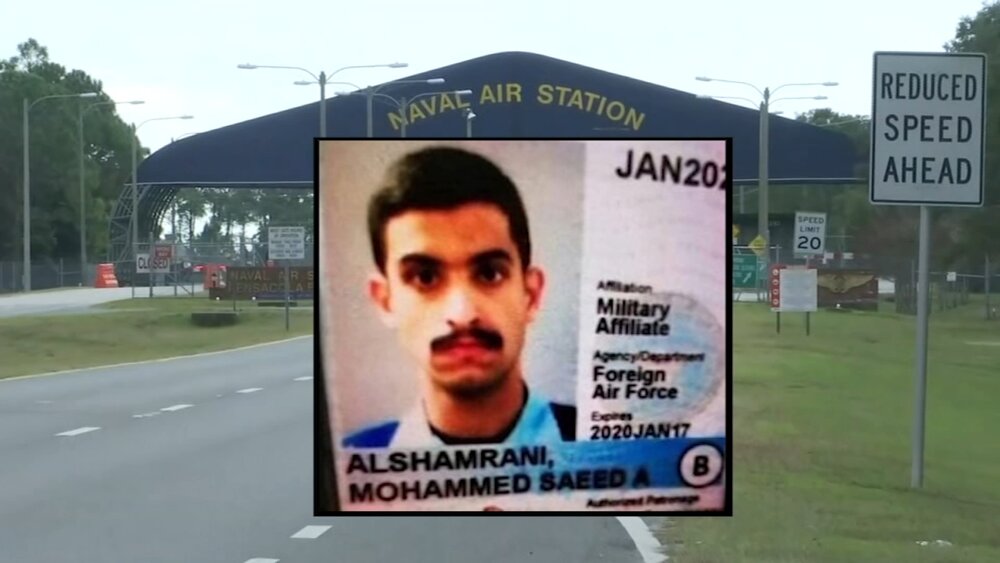Why terrorist act by Saudi Air Force officer faced media boycott!

The gunman, who began training in the U.S. in August 2017, killed three people and wounded eight. Alshamrani was shot by a deputy sheriff.
Shortly after the shooting, Saudi Arabia's King Salman contacted Trump to express regret for what had happened and sympathize with families of the victims. The Saudi king insisted that the assailant did not represent the Saudi people.
Regarding the reaction by Saudi and U.S. officials, as well as the way media outlets are dealing with the issue, some points need to be mentioned about the incident:
a. Restricted and controlled media coverage
The Saudi and U.S. media outlets have covered the incident in a restricted and controlled manner. Interestingly, Qatari media such as Al Jazeera were not also very active in this regard. These approaches can be mainly based on two main reasons:
First, the shooting by the Saudi Air Force officer can revive and intensify U.S. cynicism and hatred of Saudi Arabia by recalling the 9/11 attacks. Therefore, U.S. media outlets’ lack of enough attention to the issue is due to Washington’s insistence to advance the maximum pressure project against Iran. Obviously, undermining Saudi Arabia’s status could disrupt the project.
Second, it seems that the Qatari media are indifferent to the incident, as Doha and Riyadh are gradually changing their approaches toward each other, and Qatar is seeking to avoid tension with Saudi Arabia.
b. The way that the Saudi and U.S. officials reacted
The shooting by the Saudi Air Force officer shows that there are some radical persons among Saudi security forces, who could pose various risks. Accordingly, neither the U.S. nor Saudi Arabia have spoken about the motive behind the shooting.
However, based on numerous indications, it can be concluded that the officer was highly inspired by Wahhabism and was affiliated with terrorist groups, such as ISIS and al-Qaeda.
On the other hand, in a stereotypical way, the assailant may be charged with mental disorders. According to the New York Times, Alshamrani posted on his Twitter account, “I’m not against you for just being American, I don’t hate you because your freedoms, I hate you because every day you supporting, funding and committing crimes not only against Muslims but also humanity.”
Following the incident, some U.S. officials, including Senators Tim Scott and Matt Gaetz, condemned the shooting and called for a revision of foreign military training standards.
Tim Scott stated that the officer was either influenced by radical Islamic ideology or suffered from a mental disorder, so there is no reason that we provide military training for those who want to harm the U.S.
On the other hand, some evidence suggests that the close relationship between the Riyadh officials (especially Crown Prince Mohammad bin Salman) and the White House has led to dissatisfaction of some extremist Wahhabis, as they are opposed to the general approach of the Salafi movement.
In this regard, two important events over the past few months can be noted, which were not reflected in media properly. First, a report, which was recently released on the military’s coup attempt against Mohammad bin Salman. Second, reporting news about the killing of King Salman’s personal bodyguard. It was later revealed that the bodyguard intended to assassinate the king so he was killed in a made-up clash.
As a result, there are some reasons why the incident went somehow unnoticed by the media and the two countries’ officials.
A. If the shooting is linked to the 9/11 incident, many Americans will be persuaded to vote against Trump in the 2020 election by reinforcing ties with Riyadh.
B. The continuous effort by the al-Saud family to repair their inhuman image (especially after the killing of Jamal Khashoggi) in public opinion would fail.
C. Saudi Arabia, as the main helper in the U.S. maximum pressure campaign against Iran, would be involved in a new issue. In this case, Riyadh could not fulfill its main task, which is undermining the stability and peace in the independent regional countries, including Lebanon and Iraq.
D. The domestic disputes in the house of Saud would be unveiled, and the crown prince’s power would be undermined.
E. The White House would be forced to take an action against Saudi Arabia because of the pressure by the U.S. public opinion and Democratic politicians in particular.
Source:FarsNEWS
















